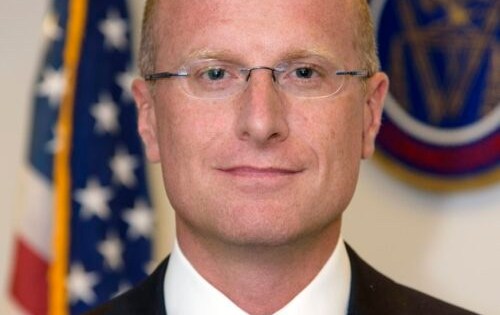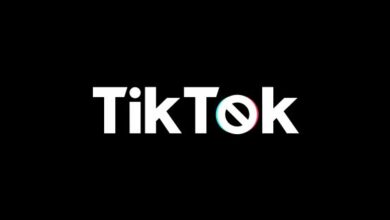Brendan Carr, Trump’s FCC pick, tells CNBC what he wants to focus on

President-elect Trump’s choice to lead the Federal Communications Commission, Brendan Carrspoke with David Faber And Melissa Lee on CNBC’s Squawk on the Street last week to discuss his plans for the commission, which include some issues that affect local television.
Carr is said having written a chapter on the FCC in Project 2025, the plan to return us to the Stone Age when it comes to human decency.
He said he wanted local broadcasters to operate in the public interest to regain the trust of viewers.
“…We need to consider empowering these local broadcasters to serve their local communities, even if it conflicts with the interests of these national networks,” he told CNBC. “I mean, at the end of the day, you have all this content from Hollywood and New York that is distributed through these local broadcasters. Let’s make sure they feel empowered to do the right thing in their local community.
DAVID FABER: You know, we’ve talked a lot about the plans for a deregulatory program, and so I’m curious to know for you at the FCC and the leadership of this agency what is at the top of your priorities in terms of addition and/or implementation. these deregulation projects?
CARR: Yes, there are four main ideas that I’ve talked about a lot in terms of the program that I want to implement. I mean, obviously, first and foremost, I want to make sure I continue to work with the Trump transition team and make sure I understand 100% what their agenda is. But for my part, the number one priority is concerned with technological censorship. Second, there are a whole host of media issues that I think deserve a fresh look at the FCC. There are – third, a whole host of economic issues, from spectrum licensing reform to the space economy, where, frankly, we need to add rocket fuel to this process. And then finally, national security. I think, especially with Salt Typhoon at the top of the list for a lot of people, it’s important that we continue to make progress in this area.
FABER: Yeah, I want to get to Salt Typhoon. We will talk about social networks. But I’m curious, you know, when you say things to review, what are you talking about?
CARR: On the media side, I think there’s no doubt that trust in the media is at an all-time low. That’s just not my opinion. Jeff Bezos recently wrote an opinion piece in which he highlighted how the media was once the most trusted institution in America. And for a long time, they could at least say that we had more confidence than Congress. And now this too has passed. He fell to the bottom. So I think there is still a lot to do to restore trust in the media. And the FCC has a role to play, at least on the broadcast side, for example. They must act in the public interest. And I think it’s probably appropriate for the FCC to take a new look at what that requirement looks like.
FABER: So, I mean, does that indicate that others have said that you have done this, that you are open to TV stations having their licenses revoked if they have, for example, collected a liberal bias?
CARR: Well, look, the law is very clear. The Communications Act states that you must act in the public interest. And if you don’t, yes, one of the consequences is potentially losing your license. And of course, it’s on the table. I mean, look, broadcast licenses are not sacred cows. At the same time, when you think about media, divide yourself into two questions, right? There are national networks, for example ABC, NBC, CBS. They provide much of the content broadcast by licensed local broadcasts. We must therefore seek to empower these local broadcasters to serve their local communities, even if this conflicts with the interests of these national networks. I mean, at the end of the day, you have all this content from Hollywood and New York that’s being distributed through these local broadcasters. Let’s make sure they feel empowered to do the right thing in their local community.
FABER: It’s funny, when you mentioned it, I thought maybe you were going to talk about some of the outdated rules around ownership, whether it’s cross ownership or foreign ownership. You know, what about that side of things? Can you imagine a scenario in which CNN and Fox, for example, are owned by the same parent company?
CARR: We need to look at these questions as well. I mean, if you look at big tech, for example, obviously they can reach 100% of the country, but local broadcasters are limited by FCC rules to only reaching a certain portion of the business. So I’m very open-minded on these different sets of questions as well: How can we make sure we get investments in local journalism, investments in local news? For too long, the FCC stood by as newspapers across the country closed by the dozens. There were many reasons for this, but we also had rules that prevented investment in local newspapers, which certainly didn’t help. So we’re going to try walking and chewing gum at the same time. There are a whole host of property issues that I also want to take a fresh look at.
MELISSA LEE: When you say, Brendan, that a broadcaster could lose their license if they are too liberal, who determines what is too liberal? Is there an example currently on the market that is too liberal? Is there a current broadcaster that you consider too liberal? And is the same true for a broadcaster who is too conservative?
CARR: Yeah, well, just to clarify, I didn’t say too liberal. I said public interest.
LEE: Okay.
CARR: And that’s something the FCC needs to look at. What does public interest mean? What is a narrow interest in comparison? I’m open to all of that.
You know, look, at the end of the day, there’s obviously a statutory provision that prevents the FCC from doing censorship. I don’t want to be the speech police. But there is something different between broadcasters and, for example, podcasters, where they have to act in the public interest. So for now, all I’m saying is maybe we should start making rules to look at what that means. There are other problems too. Look, there’s a news distortion lawsuit still lingering involving CBS, with NBC and SNL, we potentially had issues with the equal time provision. I just think we need to kind of reinvigorate the FCC’s approach to these issues, as Congress has envisioned.
LEE: Are you saying to the broadcasters: be on guard under my watch?
CARR: I’m just saying follow the law. I mean, this law has been around for a long time. It is not my decision to force broadcasters to respect a public interest obligation. It’s Congress. And if they don’t like it, then they should go to Congress to change the law. But my job at the FCC is to enforce the law passed by Congress, and that’s what I intend to do.
FABER: Brendan, in terms of your focus on what you call censorship, you talked about the fact of use and the fact that tech companies are perhaps using Section 230 as a shield and colluding not to not compete in matters of expression. To what extent do you plan to go beyond this letter that I read recently, of course, and that you sent as a commissioner to some of the big tech companies as well in terms of their use of this company called NewsGuard?
CARR: Yeah, look, this absolutely has to happen. We are somehow living under this unprecedented wave of censorship in recent years. This must end. The FCC can do a lot. I look forward to working with the FTC on this issue as well. And frankly, this is not a separate issue from economics. There is a straight line from censorship of words to censorship of ideas to a damp veil on economic growth. So I think it all ends up being linked. What the FTC has said, and particularly Commissioner Ferguson, is that if you agree not to compete on content moderation, it’s really no different than an agreement not to compete, for example , on prices. So I would look for ways in which the FCC and FTC could partner to ensure that we do not collude when it comes to taking away rights protected by the First Amendment.



